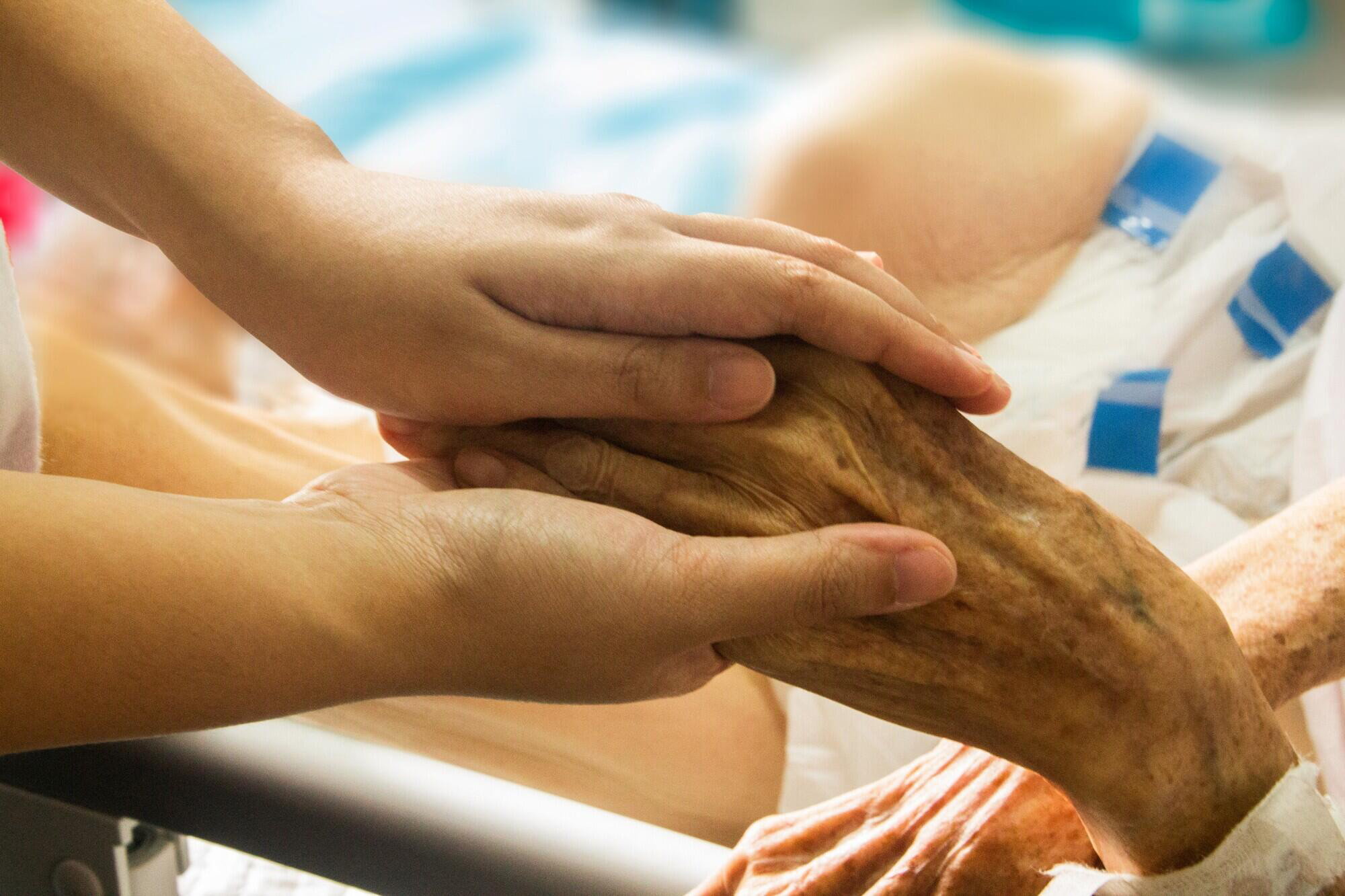Choosing the right setting for end-of-life care is more than a logistical decision. It deeply affects the emotional and physical well-being of patients and their families. Hospice care at home offers a unique combination of professional healthcare with the comfort of familiar surroundings.
At Quick Care Connect (Q.C.C), we prioritize palliative care solutions that respect personal choices and enhance dignity. This guide outlines twenty reasons why home hospice services provide essential comfort and cater to personalized health needs effectively.
As we delve into these reasons, it becomes evident that home hospice care is a compassionate choice that profoundly enriches the quality of life for those at a critical juncture.
1. Home Comfort Care
There’s a profound comfort found in the familiarity of one’s own home, from the well-loved corners of the living room to the personalized setup of a bedroom. For patients in hospice care, it directly contributes to their physical and emotional well-being.
The presence of personal items, family photos, and even pets can significantly ease the psychological burden faced by those in end-of-life care. Studies have shown that patients at home often report feeling less pain and anxiety compared to those in more clinical environments.
2. Personalized Care
In-home hospice care, every aspect of the service is customized to fit each patient’s unique needs and preferences. Adapting care to personal habits and lifestyles enhances comfort and ensures that medical attention aligns with individual routines.
For instance, if a patient enjoys reading late at night or prefers quiet mornings, caregivers adjust their schedules accordingly.
Such flexibility is not just about comfort; it’s essential for responding effectively to changes in a patient’s condition. Caregivers can refine pain management plans or modify emotional support strategies swiftly, avoiding the delays typical in more structured hospital settings.
3. Family Involvement
Home hospice care places a strong emphasis on family involvement. Loved ones can play an active role in caregiving, which supports the patient and strengthens family bonds during a difficult time.
At home, family members can help with daily routines like giving medication and assisting with physical therapy. The ability to quickly adjust care based on intimate knowledge of the patient’s needs is invaluable.
Having family nearby also boosts emotional support for the patient. Familiar faces and voices provide significant comfort and improve the patient’s overall well-being.
4. Reduced Stress
Hospice care at home significantly alleviates stress for patients and their families. Hospitals are often noisy and chaotic, which can heighten anxiety. A home setting, on the other hand, provides a peaceful and familiar environment.
Families also experience reduced stress when care is provided at home. Eliminating frequent hospital visits and the associated logistical challenges allows them to focus on quality time with their loved ones.
5. Flexibility in Scheduling
One of the key benefits of hospice care at home is the flexibility it offers in scheduling visits and treatments. Unlike the rigid schedules often found in hospital settings, home hospice care adapts to the patient’s routine. Personalized care ensures that treatments are provided at the most convenient times for the patient and their family.
Patients can receive care when they feel most comfortable, whether early in the morning or late in the evening. Such flexibility reduces disruptions to daily life and helps maintain a sense of normalcy.
Family members also benefit from adaptable scheduling. They can plan their activities and responsibilities around the patient’s care so that it is easier to provide support and be present when needed.
6. One-on-One Attention
Hospice care at home offers the significant advantage of individualized attention from healthcare providers. Each patient receives dedicated and focused care tailored to their specific needs.
In a home setting, healthcare providers can devote their full attention to one patient at a time, rather than managing multiple patients simultaneously, as often happens in hospitals.
Providers can take the time to understand the patient’s:
- Preferences
- Concerns
- Symptoms in-depth
Patients benefit from building strong, trusting relationships with their caregivers.
7. Emotional Support
Hospice care at home provides vital emotional support to both patients and their families. Facing end-of-life challenges is never easy, but being in a familiar environment can make a world of difference.
For families, the presence of professional emotional support is invaluable. Home hospice teams offer counseling and resources to help family members manage the stress and grief associated with caregiving.
It fosters a nurturing environment where families can:
- Connect
- Share experiences
- Support one another
8. Lower Risk of Infections
Hospitals, despite stringent sanitation measures, are often hotspots for various pathogens due to the high traffic of patients with diverse health issues.
At home, the circle of caregivers and visitors is smaller and more controlled, greatly diminishing the chance of exposure to infectious agents commonly present in hospital wards. Healthcare providers can focus their hygiene practices more effectively in a single, familiar environment.
Families play a crucial role in maintaining cleanliness. With the ability to oversee and manage the sanitization of their living space, they can implement regular cleaning routines that suit their specific circumstances.
9. Cost-Effectiveness
The economic benefits of choosing hospice care at home are significant, making it an accessible option for many families.
Firstly, home hospice care often requires fewer resources than hospital-based care. Without the overhead costs associated with maintaining a medical facility, expenses can be considerably lower. Patients and families can avoid the high costs of hospital stays, which include charges for room and board that accumulate daily.
Home hospice care often involves less intensive use of medical technologies, which can be expensive. Care is focused more on comfort and symptom management rather than curative treatments, which typically require costly equipment and procedures.
10. Improved Quality of Life
Being in a familiar environment can help patients feel more secure and less isolated, which is vital for emotional health.
Home hospice care enables more meaningful interactions with family and friends. These relationships are often the most comforting source of support for patients facing end-of-life challenges. The ability to spend time with loved ones in a private, non-clinical setting can profoundly affect a patient’s emotional and psychological health.
11. Holistic Approach
Physically, patients benefit from personalized pain management and symptom control. The comfort of home can positively influence the effectiveness of these treatments, as patients are more relaxed and receptive in familiar surroundings.
On an emotional level, the security of being in one’s own home allows patients to express their fears and emotions more freely. Caregivers spend significant time with each patient and offer a listening ear and compassionate guidance that’s tailored to their emotional needs.
Spiritually, many patients find peace through guidance offered by spiritual advisors who visit their homes. These sessions can be tailored to align with the patient’s beliefs and provide comfort and clarity during difficult times.
12. Privacy
Privacy is a fundamental aspect of hospice care at home, profoundly impacting the dignity and comfort of patients during their end-of-life care. The home environment naturally provides a level of privacy that is difficult to achieve in more public or shared healthcare settings like hospitals.
The privacy afforded by home hospice care also extends to emotional and spiritual moments, where patients and families can share personal experiences and conversations without the fear of being overheard or disturbed.
The ability to control who visits and when they visit ensures that interactions are more meaningful and less stressful for the patient. Families can arrange visits that align with the patient’s energy levels and mood.
13. Customized Pain Management
Customized pain management is a cornerstone of home hospice care, reflecting its commitment to individualized treatment. At home, pain management strategies are specifically tailored to suit each patient’s unique needs, preferences, and medical conditions.
Patients benefit from a personal approach where healthcare providers can closely monitor their comfort and adjust pain relief measures in real time.
In the privacy of their own homes, patients can express their pain levels and concerns more openly without feeling self-conscious. Open communication enables caregivers to refine pain management protocols more precisely. As a result, treatments are both effective and aligned with the patient’s wishes.
14. Continuity of Care
Seamless transitions from regular home healthcare to hospice care embody the essence of continuity in home settings. Well-managed changes reinforce comfort and trust, critical for patients in vulnerable phases of their lives.
Often, the same healthcare providers continue their roles during the switch to hospice care, maintaining established relationships. Familiarity with the patient’s history and personal preferences allows caregivers to smoothly integrate new components of care, such as advanced pain management techniques or spiritual counseling, without disrupting the patient’s comfort level.
Having consistent caregivers helps quickly adapt care plans to changes in the patient’s condition. Reducing stress for the patient, who might otherwise be anxious about new faces and routines, is a key benefit. It also reassures families that their loved ones are in caring hands, familiar with both their medical and emotional needs.
15. Access to Comprehensive Services
Home hospice care offers a variety of comprehensive services that cater to the diverse needs of patients and their families.
To begin with, essential medical equipment like hospital beds and oxygen systems are delivered right to your door, ensuring comfort and convenience. Additionally, pharmaceutical services provide timely medication management, customized to each patient’s unique needs.
Furthermore, nutritional and dietary support from expert nutritionists helps patients maintain their strength and well-being. Therapeutic services, including occupational and speech therapy, help patients retain their functional abilities.
In addition, home health aides assist with daily activities such as bathing, dressing, and grooming, ensuring that patients maintain their dignity and comfort.
16. Professional Medical Care
Home hospice care ensures a high standard of professional medical care within the comfort of a patient’s home. Experienced healthcare professionals, including doctors, nurses, and specialists, provide personalized care tailored to each patient’s specific needs.
Additionally, healthcare providers can respond swiftly to changes in the patient’s condition, ensuring continuous, high-quality care.
17. Support for Caregivers
Caring for a loved one at home can be challenging, which is why home hospice care includes extensive support for family caregivers. Additionally, respite care services offer temporary relief, allowing caregivers to rest and recharge.
Emotional support through counseling and support groups is also available, helping caregivers cope with stress and grief. By providing these resources, home hospice care ensures that caregivers are well-prepared and supported throughout the caregiving process.
18. Advanced Care Planning
Advanced care planning is a crucial component of home hospice care, helping patients and families make informed decisions about end-of-life care. Through personalized consultations, healthcare providers assist in developing a comprehensive care plan that reflects the patient’s wishes and medical needs, including:
- Discussing treatment options
- Setting goals for care
- Outlining advance directives
19. Better Communication
In a home setting, there is more time for in-depth discussions about the:
- Patient’s condition
- Treatment options
- Care preferences
This open communication fosters a collaborative approach to care, ensuring that everyone involved is well-informed and aligned with the patient’s goals.
Regular updates and accessible healthcare professionals make it easier for families to stay informed and ask questions. Enhanced communication helps to build trust and ensures that the care provided is truly patient-centered.
20. Enhanced Dignity
Home hospice care upholds the dignity of patients during end-of-life care by providing a familiar and respectful environment. Patients can maintain their routines and personal preferences, which contributes to their sense of autonomy and control.
Personalized care plans are designed to honor the patient’s wishes, ensuring that their dignity is preserved in every aspect of care.
Additionally, the privacy and comfort of home allow for more intimate and meaningful interactions with loved ones.
Why Choose Hospice Care at Home?
Choosing hospice care at home brings numerous benefits for patients and their families, from professional medical care to emotional and practical support. It ensures dignity, improved communication, and comprehensive, personalized care in a familiar environment.
At Quick Care Connect, we understand the challenges of scheduling hospice nurses due to our personal experience in the field. Our software offers a seamless, comprehensive approach to connecting patients with dedicated caregivers.
For more information and to see how we can help you, contact Quick Care Connect and ensure the best care for your patients.


